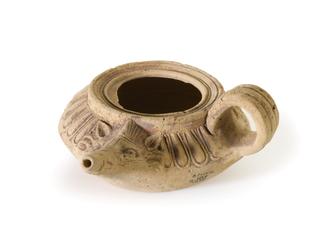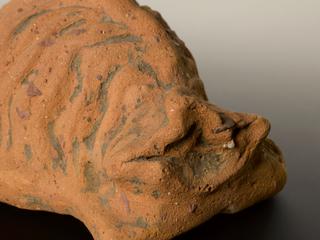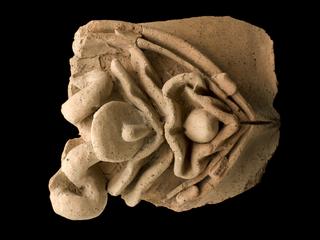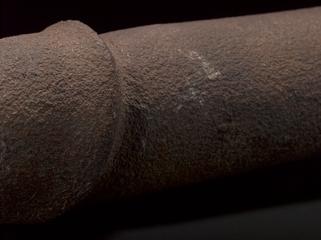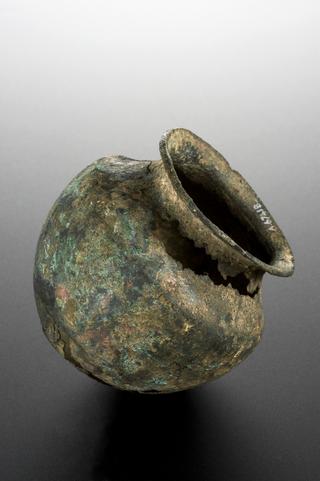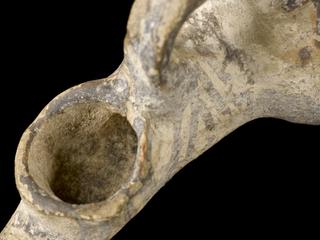
Votive left foot
- Made:
- 1-200 CE in Roman Empire


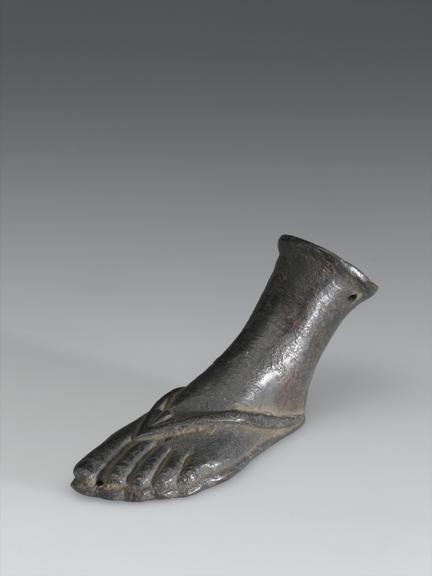

Bronze votive left foot, Roman, 1-200AD
Votive offerings were made at the temple of a healing god such as Asklepios, the Greco-Roman god of healing and medicine. They were offered in the hope of receiving a cure or as thanks for one. Votives were made in the shape of the affected or cured body part, in this case a person’s left foot. The foot is cast in bronze and is wearing a sandal, although it does look like a modern day flip-flop! It has a hole so it can be hung up on a wall. The use of bronze may indicate a wealthy owner as most votives were made from terracotta.
Details
- Category:
- Classical & Medieval Medicine
- Collection:
- Sir Henry Wellcome's Museum Collection
- Object Number:
- A28797
- Materials:
- bronze
- Measurements:
-
overall: 62 mm x 36 mm x 110 mm, 0.16kg
- type:
- votive foot
- credit:
- Sotheby's
